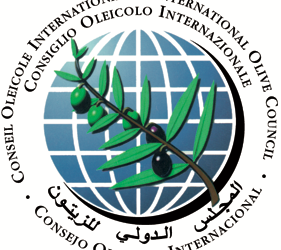By Sami Zaptia.
Washington DC, 8 October 2013:
With the US government shutdown and political deadlock at the US Congress threatening a global . . .[restrict]economic fallout, IMF Managing Director Christine Lagarde said that countries will need to adopt strong national policies and work together even more closely to manage new transitions under way in the global economy.
Lagarde was speaking at George Washington University ahead of the 2013 World Bank-IMF Annual Meetings that open tomorrow (Tuesday 9th October).
Lagarde highlighted two new transitions: one in the pattern of economic growth, and another toward a different kind of financial sector.
“The transitions I am talking about today are different,” Lagarde told the audience. “They will likely play out over the rest of the decade, if not longer. And they will require not only active national policy management, but also active international policy collaboration.”
“These new global transitions need a new global agenda,” she said. “With the right policies, these transitions can be managed,” Lagarde pointed out. “But of course, they can be derailed by the wrong policies.”
Lagarde noted that although the global outlook remained subdued, there were “signs of hope” from advanced economies—the United States, the Euro Area, and Japan.
The Managing Director stressed the important role played by monetary policy. Any pending normalization of monetary policy in the United States needs to be managed carefully, Lagarde cautioned, noting that the U.S. has a special responsibility “to implement it in an orderly way, linking it to the pace of recovery and employment; to communicate clearly; and to conduct a dialogue with others.”
In the midst of U.S. fiscal challenges, Lagarde said, the ongoing political uncertainty over the budget and the debt ceiling does not help. “The government shutdown is bad enough, but failure to raise the debt ceiling would be far worse, and could very seriously damage not only the U.S. economy, but the entire global economy,” she warned. “So it is ‘mission-critical’ that this be resolved as soon as possible.”
While the emerging markets drove the recovery for the past five years, growth momentum is slowing and the external environment is becoming more challenging—partly due to the anticipated exit from easy monetary policies in the United States.
The immediate priority for emerging markets is to ride out the turbulence as smoothly as possible, Lagarde said, spelling out some of the needed policy responses to prevent these economies getting stuck in low gear—including currency depreciation, liquidity provision, and structural reforms.
Low-income countries, too, are in the process of profound transition, Lagarde said. Their transition, however, is not without risks. “The low-income countries sit between the advanced country rock and the emerging market hard place,” Lagarde noted.
Lagarde only gave a brief mention of Arab Spring countries n her speech. She called for the international community to help the Arab transition countries keep up the drumbeat for economic reform.
In Libya’s case, the IMF advice on reform includes diversification of the economy away from hydrocarbons, encouraging the private sector, improving government financial management, reducing state-sector wages and reforming the banking system.
Lagarde pointed to a second fundamental transition—one taking place in the global financial sector. This transition, however, remains a case of “mission not yet accomplished,” she said.
In managing well these two major transitions—economic and financial—international collaboration is the only way forward, Lagarde concluded. “Mutual help is the best form of self help.” That, in turn, means that the IMF will need to be more helpful than ever before, Lagarde noted.
It will be noted that an IMF team had visited Libya over the last two weeks and according to leaks by GNC members to Libya Herald they were displeased by the government’s performance with regards to over spends on state-sector salaries, lack of progress on diversification and Single Treasury Accounts, sending development money on salaries and the spectre of Libya going into deficit in the coming years. [/restrict]









